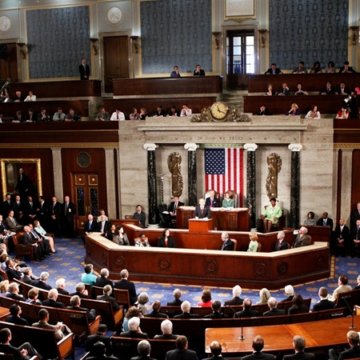- About
- Topics
- Picks
- Audio
- Story
- In-Depth
- Opinion
- News
- Donate
- Signup for our newsletterOur Editors' Best Picks.Send
Read, Debate: Engage.
| located: | USA, Yemen, Saudi Arabia |
|---|---|
| editor: | Yair Oded |
The murder of U.S.-based Saudi journalist Jamal Khashoggi at the Saudi consulate in Istanbul has signalled to American lawmakers that they cannot afford to perpetuate their unrelenting support of the Crown Prince. Then, in a recent vote, the Republican-controlled Senate decided to reopen debates regarding the U.S. fueling of the Saudi-led coalition in Yemen.
The vote came following a series of unsuccessful attempts by Senators and Congress members to halt America’s involvement in what the UN has come to define as the world’s worst humanitarian crisis. Although the U.S. isn’t directly bombing targets in Yemen, it nonetheless nourishes the Saudi war machine and supplies it with arms, technology, and intelligence that thus far has resulted in the deaths of tens of thousands of Yemeni men, women, and children and complete destruction of what was already a volatile nation.
The war in Yemen broke out approximately three years ago when Houthi rebels (Shia Muslims) took over key parts of the nation, including its capital. Saudi Arabia saw the rise of the Houthis as a threat to their Suni hegemony in the Arabian peninsula and viewed them as a proxy of Iran (the Kingdom’s sworn enemy and a Shia centre of influence). With the war in a state of ongoing stalemate, it appears that the Saudi tactic is to force the Houthis into submission by crippling Yemen and its population.
According to the United Nations, 18,000 civilians have already died or were injured as a result of the fighting. But these figures refer to only a fraction of the catastrophe unfolding in Yemen, as a significantly greater number of civilian casualties occur as a result of the dire humanitarian crisis that is currently rippling out of control due to the fighting as well as a Saudi blockade on the country, which heavily restricts transferring of humanitarian aid supplies.
Eight million Yemenis are on the brink of famine and 85,000 Yemenis under the age of 5 have thus far died of starvation, according to the nonprofit organisation Save the Children. In addition to famine, Yemenis also grapple with outbreaks of disease, such as cholera, which presently affect 21 out of the nation’s 22 provinces.
Such chaos could not be made possible without the relentless support of the United States of America, which commenced under Obama and grew exponentially under the current administration. Following the Houthi takeover of the Yemeni capital in 2015, the Obama administration announced a sale of bombs worth $1.29 billion to Saudi Arabia, which has already been enjoying American military support as a U.S. ally against Iran.
By the end of his term, however, Obama understood that the Saudis were not utilising the technology and intelligence given to them by the U.S. in order to minimise civilian casualties in Yemen, and had decided to scale down military support to the Kingdom. Alas, Obama’s successor in the White House has not only removed any limitations but also increased the amount of arms sales to the Saudi-led coalition.
According to the U.S. Constitution, only Congress has the authority to declare war, which it hasn’t done since World War II. Yet, presidents have since drawn on their executive power to engage in military operations around the world without officially declaring war. That said, Congress can still invoke a 1973 Resolution which grants the House power to order a president to withdraw troops from a conflict zone within 90 days (although to date it has never exercised this authority over a president).
It remains to be seen whether Congress will use its power to terminate U.S. support of the Saudi war in Yemen and thus, hopefully, bring this lingering chaos to an end. Some predict that such a step will be more likely following the Democrats’ takeover of the House in the new year. Others contend that the White House’s tight connections to the Crown Prince will preclude any meaningful action against the Kingdom and the scaling down of American support of its war.
Nevertheless, there is currently a momentum to act, and it is up to the American people to raise their voice in protest and pressure their representatives to withdraw the nation from a bloody conflict which results in nothing but the utter destruction of Yemen and the inhalation of its people.

